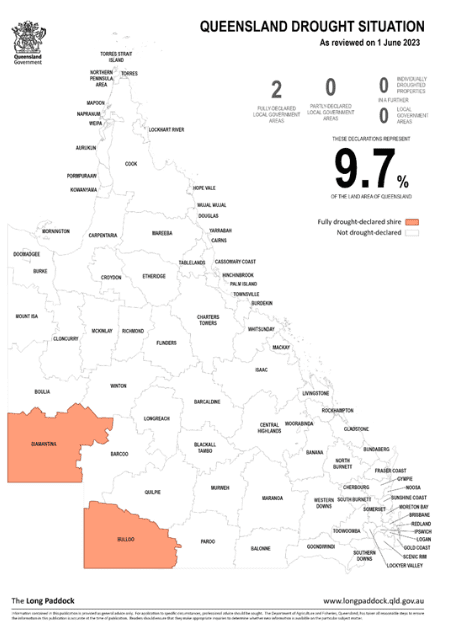AgForce is urging the Queensland Government to strengthen the State’s rural voice on Local Drought Committees (LDCs) – keeping those most affected at the heart of decisions.
The call comes as Minister for Rural Communities Mark Furner announces a review of the State’s drought declaration process, which includes looking into the continuation and current structure of LDCs.
Mr Furner said the review, to be conducted by former AgForce chief executive officer Charles Burke, will examine how drought declarations are made and how they support primary producers.
Recommendations will be made on how to improve the process of determining drought declarations in Queensland, with a report expected to be presented to the Minister later this year.
The Minister’s statement announcing the review said LDCs were established in 1982 to support decisions on Queensland’s drought situation, with local committees generally meeting at the end of each wet season to make recommendations to the Minister on whether an area should be drought-declared. The LDC system was designed to support the payment of freight subsidies to drought-affected primary producers under the Drought Relief Assistance Scheme.
However, the new Queensland Drought programs, such as drought preparedness grants and drought ready and recovery loans, do not rely on a drought declaration.
While DRAS subsidies are being phased out and won’t apply to future drought declarations, other programs such as water licence waivers and electricity charge relief may still be available in future droughts. These assistance measures currently rely on declarations.
“With less than 10 per cent of Queensland now drought-declared, this is the right time to take this next step in the reform process and ensure our drought programs are as strong as they can be,” Mr Furner said.
Imperative LDCs continue to inform recommendations: AgForce
AgForce CEO Michael Guerin said while the organisation supported the review, it was imperative that LDCs could continue to inform on the ground recommendations on which areas should be drought declared.
“The use of LDCs provides locally relevant expertise and support for government decision making, and this makes perfect sense to us,” he said.
“The LDC representatives are geographically based in the regional councils and shires, aligned to council areas – the same areas used for drought declarations.
“The knowledge producers provide on their local environment is extremely valuable, as is involving local organisations, councils, and on the ground intelligence, in supporting fair and equitable decisions for all parties regarding drought declarations and revocations.
“It is incredibly presumptuous for people to assume that someone working out of a city office can make drought declarations based solely on satellite imagery or a CSIRO forecasting.
“Objective scientific data like satellite imagery and forecasts is important, but it simply must be underpinned by local understanding of current and expected agricultural conditions. If not, we risk having decisions made that grossly miscalculate the situations and needs of our farming communities.”
The review, pledged as part of the Queensland Government’s drought reforms, will be conducted by former AgForce CEO Charles Burke, with recommendations to be made to Minister Furner later this year.
Mr Guerin said the function of LDCs could be improved by providing greater clarity and transparency on processes and procedures used, including integrity provisions around membership, as well as expanding their role to enable them to provide an industry ‘early warning’ of drying conditions.
In addition, AgForce would like to see a stronger emphasis on helping primary producers prepare for the next drought, while building on current drought support.
“While the area of Queensland currently drought declared has ebbed to less than 10 per cent of the state, many producers remain affected by dry and drying conditions,” said Mr Guerin.
“We would like to see ‘in-event’ assistance continue, such as relief for water and electricity charges, and ideally this should be increased on a ‘per enterprise’ basis into the future.
“We would also encourage the government to progress recommendations from the review relating to reforms to fodder tree harvesting provisions, and embed drought-related triggers for increases to the Queensland Department of Education Living Away from Home Allowances Scheme.
“We look forward to engaging with Mr Burke and ensuring primary producers across the state can have their say on how droughts are declared.”
Source: Queensland Minister for Agriculture, AgForce Qld

